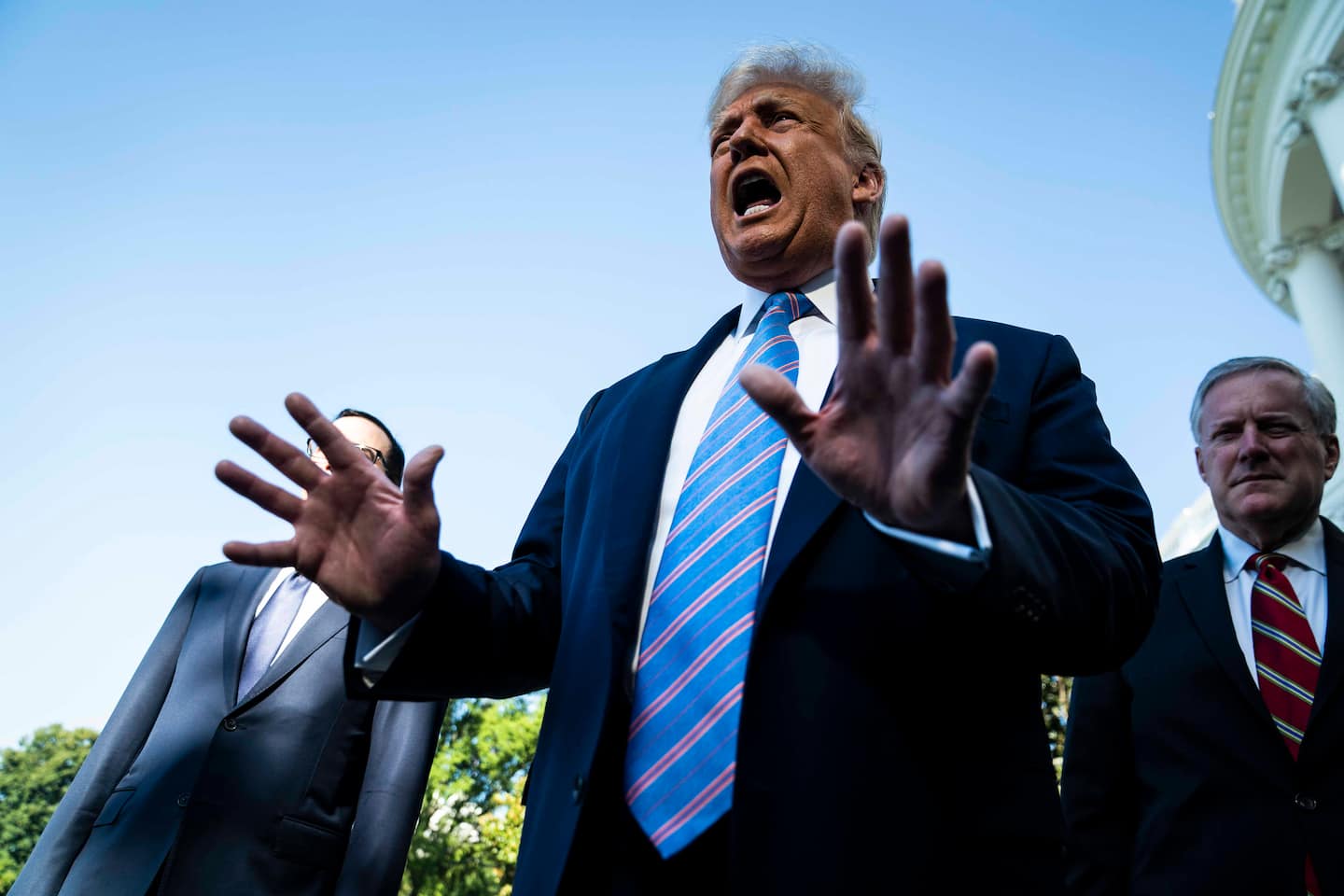Clean up, Aisle 1600: White House says Trump didn’t really mean that thing about declassifying Russia documents

But on Tuesday, we got one of the most remarkable episodes in this saga to date: The top aide to Trump assured a court of law that what the president had said on Twitter wasn’t, in fact, what he meant and had virtually no real impact on what the U.S. government does.
In a sworn court filing Tuesday, White House Chief of Staff Mark Meadows downplayed Trump’s recent tweet declaring that he had authorized the declassification of all documents related to the Russia investigation.
Trump on Oct. 6 made waves by writing: “I have fully authorized the total Declassification of any & all documents pertaining to the single greatest political CRIME in American History, the Russia Hoax. Likewise, the Hillary Clinton Email Scandal. No redactions!”
The tweet instantly set off intrigue. Whatever Trump might have thought he was declassifying when it came to the supposed law enforcement “coup” against him, or Clinton’s emails, his tweet would also mean he had declassified items that might not reflect so well upon him. What about the redacted portions of special counsel Robert S. Mueller III’s report? What about the evidence that was collected against him over the course of the Russia investigation that preceded it? Trump had seemingly opened himself up to a minefield of information that could suddenly be available to the public — on the eve of the election, no less.
Alas, as the president’s aides have held many times before, Meadows said Trump was effectively just spouting off.
In a court filing related to cases involving BuzzFeed News and CNN, Meadows made a legal declaration that Trump’s tweet was, in fact, not declassifying anything.
“The President indicated to me that his statements on Twitter were not self-executing declassification orders and do not require the declassification or release of any particular documents,” Meadows said.
In essence, not only was Trump not declassifying “any & all documents” related to the Russia investigation, but he wasn’t newly declassifying any of them.
Meadows also singled out individual documents that shouldn’t be considered newly declassified, saying they included “the FD-302 reports of witness interviews prepared by the Federal Bureau of Investigation in connection with the investigation conducted by Special Counsel Robert Mueller, III.” Why those documents? They could shed light on the thus-far-obscured evidence against Trump that the media and his opponents were so anxious to see, given Trump’s tweet.
Plaintiffs in the cases argued that Trump’s tweet should mean they should have access to such information. A U.S. District Court judge rejected the government’s argument that the tweets were “ambiguous” and ordered it to consult with Trump directly on what he meant.
Meadows contended that Trump wasn’t talking about anything new.
“Instead,” Meadows said, “the President’s statements related to the authorization he had provided the Attorney General to declassify documents as part of his ongoing review of intelligence activities relating to the 2016 President election and certain related matters.”
Okay, so the argument here seems to be that Trump was referring to something he had already done many months ago — in May 2019 — when he authorized Attorney General William P. Barr to declassify intelligence related to the Russia investigation. Except that wasn’t a wholesale declassification, even on the narrower topic of allegedly nefarious aspects of the investigation; it was merely giving Barr the power to declassify things as he saw fit. So for Trump to say that he has “authorized the total Declassification of any & all documents” wouldn’t really track with the decision.
Meadows went on: “The President’s statements do not require altering any redactions on any record at issue in these or any other cases, including, but not limited to, any redactions taken pursuant to any discretionary [Freedom of Information Act] exemptions.”
It’s perhaps somewhat plausible that Trump was referring, in some tortured and inarticulate way, to the authorization he had provided to Barr 17 months ago to declassify documents. But that’s very difficult to square with him saying he himself had authorized the declassification of “any & all” of them. What’s more, saying there should be “No redactions” could lead one to believe he intended to put all that information out there without exception. Even if Barr were to be in charge of making such decisions, why would Trump specify that he didn’t want any information contained within the documents to be withheld?
At the least, this is a president weighing in on a significant issue of national security and accountability for his government. Perhaps it would be best to make sure every word is refined so there’s no confusion or ambiguity. Of course, that’s never really been Trump’s style. And Meadows is the latest to confront the legal problems it creates.






